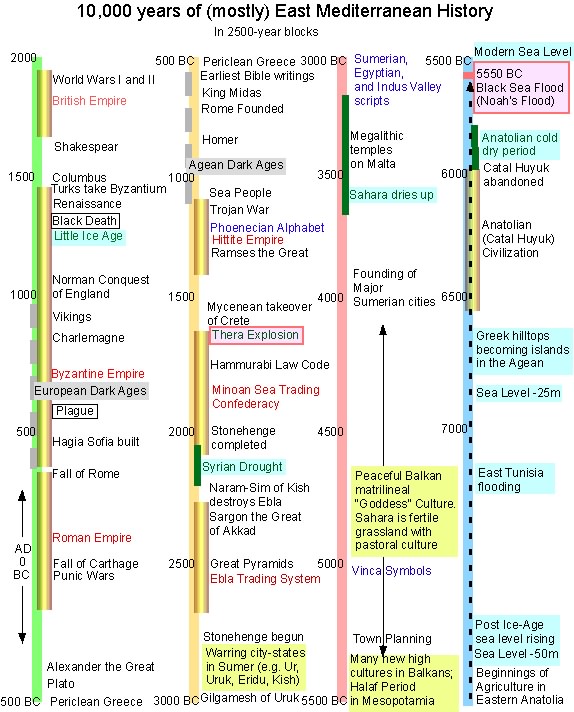

Eastern Mediterranean history goes back a long way. In Europe and North America, we are usually taught that civilization started with the Classical (Periclean) Age in Greece. But that was only a Renaissance after about 600 years of the Agean Dark Ages, when literacy was so rare that Homer treated the ability to send a written message as almost a form of magic.But literacy 1500 or 2000 years before Homer had been much more widespread, as witness the thousands of court records found in the Ebla that was destroyed by Naram Sim around 2300 BC. In Knossos of around 1800 BC, according to John Chadwick, it seems that the administrative records were as likely to be kept by the officials responsible as by specialist scribes. Civilization did not start with Periclean Greece.
As these time-lines illustrate, the 2500-year block is a convenient stretch. Roughly 2500 years ago, Periclean Greece laid the foundations of our present European version of civilization. 2500 years before that, Gilgamesh was King of Uruk, and starred in the earliest written "historical epic" that we know of. That epic told of the Great Flood, which now seems to have been a memory of the filling of the Black Sea by a catastrophic breakthrough from the Mediterranean 2500 years before Gilgamesh. And 2500 years before that—or perhaps a little earlier—the first agricultural villages began to appear, in Eastern Anatolia.
Throughout that earliest 2500-year span, the oceanic sea-level was rising and flooding great stretches of land, particularly to the east of what is now Tunisia, the north half of the Adriatic, and what are now the Greek Islands, many of which are the tops of what were hills on large island or on the Greek mainland (as Plato says the Egyptians told him was the case, in his Atlantis story).